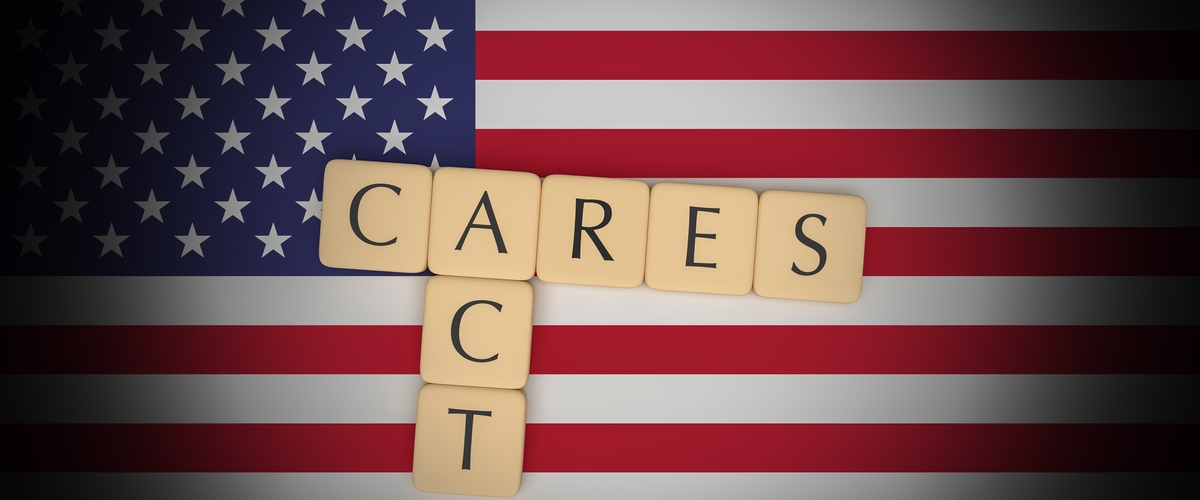CORONAVIRUS UPDATE: Coronavirus Aid, Relief, and Economic Security Act (CARES)

This summary of the CARES Act does not imply expertise or original information on the part of MCCS or the Marine Corps but is provided for background with links to external resources that have more information applicable to your situation.
Individual Taxpayers
The bill would provide:
- $1,200 for individuals
- $2,400 for joint taxpayers
- Additionally, taxpayers with children will receive a flat $500 for EACH CHILD
GREAT NEWS: The payment(s) would not be counted as taxable income for recipients.
What Determines Who Gets What?
Gross Adjusted Income is the trigger for payments and the IRS will use 2019 taxpayer forms to determine how much a person's check should be and where it should be sent. Social Security Administration benefit information may be used for low-income taxpayers solely relying on Social Security benefits. If 2019 taxes have yet to be filed, the IRS would use information from taxpayers' 2018 forms. This could be problematic for Americans who don't file taxes.
What if you didn’t file your 2018 or 2019 taxes?
If you didn’t file in the past two years, the IRS recommends that you file your 2018 taxes as soon as possible. Checks will start arriving in April.
Your payments will be paid electronically if you have provided direct deposit information to the IRS on your 2018 or 2019 tax returns. Others who the IRS must find or wait for address notifications or corrections before December 31, 2020.
Now the Not So Happy News: “Phasing”
Go back to your 2018 or 2019 Tax Return and find the line item: Adjusted Gross Income. Triggers are: $75,000 Single and $150,000 if married. Those filing as head of household, the trigger begins at $112,500. Once over those thresholds, you’ll lose $5 of your payment for every $100 your AGI exceeds those thresholds.
Examples:
- Single with no kids. Your $1,200 will be wiped out completely if your AGI exceeded $99,000. Here’s the math: $99,000 - $75,000 equal $24,000 x 5% = $1,200.
- Married, no kids. Your $2,400 will be wiped out if your AGI exceeded $198,000. Your math looks like this: $198,000-$150,000 equal $48,000 x 5% = $2,400.
For example, a married couple with two children who is eligible for the maximum payment of $3,400 wouldn’t lose all their payment until AGI exceeded $218,000.
2020 Tax Returns
Key point- don’t forget: Any payment you receive acts as an advance payment of a credit you will compute again on your 2020 tax return. Remind your tax preparer. If you use tax software, it should remind you.
Unemployment
- Unemployment Insurance provisions now include an additional $600 per week payment to each recipient for up to four months.
- Extend Unemployment Insurance provisions to self-employed workers, independent contractors, and those with limited work history.
- The FEDERAL government will provide temporary full funding of the first week of regular unemployment for states with NO WAITING PERIOD and extend Unemployment Insurance benefits for an additional 13 weeks through December 31, 2020 after STATE UI benefits end.
- For those not usually eligible for unemployment, such as the self-employed, independent contractors, and those with limited work history will get a $600 per week increase in benefits for up to four months and federal funding of Unemployment Insurance benefits.
Coronavirus Related Challenges
- Waives the 10 percent early withdrawal penalty on retirement account distributions for taxpayers facing virus-related challenges.
- Withdrawn amounts are taxable over three years, but taxpayers can recontribute the withdrawn funds into their retirement accounts for three years without affecting retirement account caps.
- Eligible retirement accounts include individual retirement accounts (IRAs), 401Ks and other qualified trusts, certain deferred compensation plans, and qualified annuities.
- The bill also waives required minimum distribution rules for certain retirement plans in calendar year 2020.
Help With Student Loan Payments
Employers may contribute up to $5,250 annually toward student loans, and the payments would be excluded from an employee’s income.
Veterans
$20 billion, including $16 billion for treating veterans at Veteran Administration (VA) facilities; $3 billion for temporary and mobile facilities.
Businesses
$150 billion in a Coronavirus Relief Fund for state and city government expenditures incurred due to dealing with the coronavirus public health emergency. The fund would be allocated by population proportions, with a minimum of $1.25 billion for each state.
The excise tax applied on alcohol used to produce hand sanitizer is suspended for tax year 2020.
Employers are eligible for a 50 percent refundable payroll tax credit on wages paid up to $10,000 during the crisis. The credit is available for employees retained but not currently working due to the crisis for firms with more than 100 employees, and for all employee wages for firms with 100 or fewer employees.
$350 billion allocated for the Paycheck Protection Program, which is meant to help small businesses (fewer than 500 employees) impacted by the pandemic and economic downturn to make payroll and cover other expenses from February 15 to June 30. Notably, small businesses may take out loans up to $10 million—limited to a formula tied to payroll costs—and can cover employees making up to $100,000 per year. Loans may be forgiven if a firm uses the loan for payroll, interest payments on mortgages, rent, and utilities and would be reduced proportionally by any reduction in employees retained compared to the prior year and a 25 percent or greater reduction in employee compensation.
$454 billion in emergency lending to businesses, states, and cities through the U.S. Treasury’s Exchange Stabilization Fund. Loans also come with terms limiting employee compensation and severance pay for firms taking loans. Emergency lending will be overseen by a Congressional Oversight Commission and IG.
More Details Needed? Consult the Experts!
Stimulus Payment Check (click or touch "Stimulus Check"): https://www.irs.gov/coronavirus
The Tax Foundation: https://taxfoundation.org/cares-act-senate-coronavirus-bill-economic-relief-plan/
Small Business Administration: https://www.sba.gov